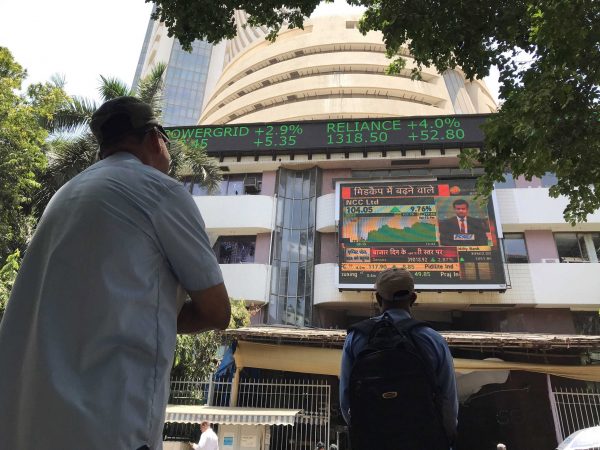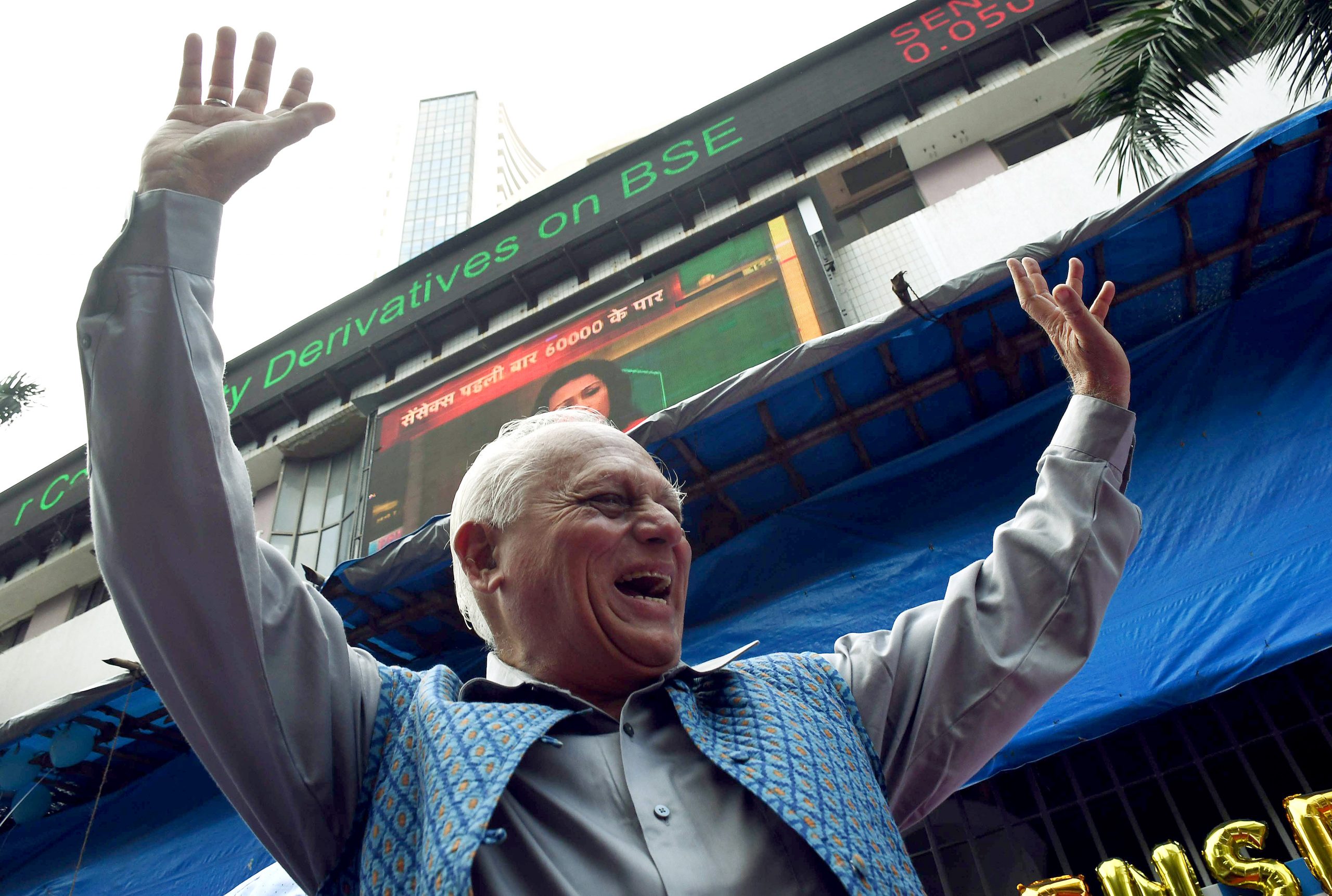Trump’s last two weeks in office will continue to affect the indices across the world
Our Bureau
New Delhi
The markets are going up and down – almost on weekly basis, if not daily.
Equity benchmark indices hit fresh record highs on Friday tracking positive global cues and optimism about an economic recovery. The BSE S&P Sensex closed 689 points or 1.43 per cent higher at 48,783 while the Nifty 50 jumped by 210 points or 1.48 per cent to 14,347. Except for Nifty metal and PSU bank, all sectoral indices at the National Stock Exchange were in the positive terrain with Nifty IT gaining by 3.6 per cent, auto by 3.3 per cent and realty by 1.4 per cent.
IT stocks gained on positive global cues with Tech Mahindra advancing by 5.3 per cent, Wipro by 5.2 per cent and Infosys by 3.9 per cent. Agro-chemicals manufacturer UPL added gains of 4 per cent at Rs 502.30 per share while Power Grid Corporation ticked up by 3.4 per cent to Rs 203.80.
Meanwhile, Asian shares rose to record highs with Japan’s Nikkei hitting a three-decade peak as investors looked beyond rising coronavirus cases and political unrest in the United States.
In Tokyo, the Nikkei added 2.36 per cent, hitting its highest level since August 1990. Hong Kong’s Hang Seng rose by 1.2 per cent.
A day earlier, however, IT stocks fell with Infosys tumbling by 1.3 per cent, Tata Consultancy Services by 1 per cent, HCL Technologies and Tech Mahindra by 0.8 per cent each.
Wall Street indexes eased overnight from session highs as police evacuated lawmakers and struggled for more than three hours to clear the Capitol of Trump supporters.
On Wednesday, equity markets witnessed a wave of selling in IT and FMCG stocks on with key indices being dragged down by heavyweight Reliance Industries. Among stocks, Reliance Industries lost by 2.6 per cent to Rs 1,914.95 per share. FMCG majors ITC and Hindustan Unilever retreated by 2.9 per cent and 1.4 per cent respectively.
IT stocks too suffered with Tata Consultancy Services down by 1.3 per cent and HCL Technologies by 1.6 per cent. Bajaj Finance, Axis Bank, Eicher Motors and Bajaj Auto, too, traded in the negative terrain.
The same day, global stock prices had slipped as investors braced for the prospect that Democrats could win both races in a US Senate run-off election in Georgia, handing them control of the crucial chamber.
The trend is global.
Wall Street began 2021 with its worst loss since November as US stocks sold off on worries about the protracted coronavirus crisis and fear the incoming president Joe Biden might raise corporate taxes if the Democrat party wins control of the Senate and backs his policies.
The Dow Jones Industrial Average, Wall Street’s broadest stocks gauge, closed the first trading day of the year down 1.3 per cent at 30,224. The S&P 500, a barometer for the top 500 US stocks on the New York Stock Exchange, settled at 3,701, down 1.5 per cent. Last year, it gained 15.8 per cent.
Stocks fell as a new coronavirus variant, initially identified in the United Kingdom, continues to spread in the United States with New York being the third US state that has identified a case.
A week earlier, US stocks hit record highs after President Donald Trump signed the latest COVID-19 relief bill into law, ending the stand-off on the issue that had held up financial aid for Americans affected by the pandemic.
The Dow Jones Industrial Average, Wall Street’s broadest stocks gauge, edged up 0.7 per cent to close at 30,404, after reaching a historic high at 30,526.
Trump stunned markets when he announced that he would not sign the Congress-approved USD 900 billion relief bill and an accompanying government funding bill of USD 1.4 trillion unless lawmakers agreed to boost the aid for each American from USD 600 to USD 2,000.
While Republican senators continued to hold out on the president’s demands on Friday, Democrats rallied behind him in a rare show of unity. Trump reversed his stance on the matter just as suddenly on Sunday and signed the bill, saying he had gotten Republicans to agree on sending separate checks to Americans to make up for the USD 2,000 payout. Trump’s move triggered a rally across risk assets.


























